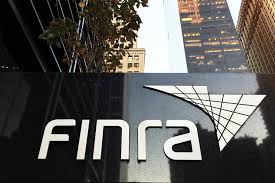

This post first appeared on the Securities Arbitration Alert blog. The blog’s editor-in-chief is George H. Friedman, Chairman of the Board of Directors for Arbitartion Resolution Services, Inc.
The comment period closed earlier this month on FINRA’s proposed changes to the expungement process. The institutional comment letters – including those from PIABA, NASAA, and SIFMA – were mostly supportive, but suggested further improvements. Individual industry commenters, however, mostly panned the proposed rule changes and the expungement process in general.
We reported in SAA 2022-30 (Aug. 4) that FINRA staff had followed up on recent Board approval to file a new expungement rule. Specifically, FINRA on August 1 filed with the SEC SR-FINRA-2022-024, Proposed Rule Change to Amend the Codes of Arbitration Procedure to Modify the Current Process relating to the Expungement of Customer Dispute Information. The introduction to the 298-page rule filing would amend the Codes: “to impose requirements on expungement requests (a) filed by an associated person during an investment-related, customer-initiated arbitration (‘customer arbitration’), or filed by a party to the customer arbitration on behalf of an associated person (‘on-behalf-of request’), or (b) filed by an associated person separate from a customer arbitration (‘straight-in request’).” We later reported in SAA 2022-32 (Aug. 18) that Federal Register publication occurred on August 15 (Vol. 87, No. 156, P. 50170), and that comments were due by September 6.
A Concise History
Recall that, as reported in SAA 2021-22 (Jun. 3), FINRA in May 2021 temporarily withdrew a proposal for improving the expungement process — SR-FINRA-2020-030 — which had its origins in the Dispute Resolution Task Force and its Final Report and Recommendations. A Press Release announced: “Following consultations with the SEC staff, we temporarily withdrew from SEC consideration our rule filing establishing specialized arbitration panels for expungement requests so that we can further consider whether modifications to the filing are appropriate.” The two-page regulatory filing provided no further insights. As later reported in SAA 2022-17 (May 5), the Authority on April 28, 2022 issued a 26-page Discussion Paper – Expungement of Customer Dispute Information. The Discussion Paper recommended a dual-track approach of adopting expungement reforms contained in the withdrawn rule, while at the same time considering new ideas. We later reported in SAA 2022-18 (May 12) that, just days after FINRA issued the Discussion Paper, SIFMA on May 6 submitted to the SEC a comment letter accusing FINRA of overreaching.
New Rule Filing
With an emphasis on “straight-in” cases, the proposed rule change would: “(1) require that a straight-in request be decided by a three-person panel that is randomly selected from a roster of experienced public arbitrators with enhanced expungement training; (2) prohibit parties to a straight-in request from agreeing to fewer than three arbitrators to consider their expungement requests, striking any of the selected arbitrators, stipulating to an arbitrator’s removal, or stipulating to the use of pre-selected arbitrators; (3) provide notification to state securities regulators of all expungement requests and a mechanism for state securities regulators to attend and participate in expungement hearings in straight-in requests; (4) impose strict time limits on the filing of straight-in requests; (5) codify and update the best practices in the Notice to Arbitrators and Parties on Expanded Expungement Guidance (‘Guidance’) applicable to all expungement hearings, including amendments to establish additional requirements for expungement hearings, to facilitate customer attendance and participation in expungement hearings and to codify the panel’s ability to request any evidence relevant to the expungement request; (6) require the unanimous agreement of the panel to issue an award containing expungement relief; and (7) establish procedural requirements for filing expungement requests, including for on-behalf-of requests” (footnotes omitted). The proposed rule change would also amend the Customer Code: “to specify procedures for requesting expungement of customer dispute information during simplified arbitrations.”
Several Comments, Almost All Supportive, But Suggesting Improvements
As of press time, nearly 40 letters were posted on the SEC’s Website. We present below some representative comments. Footnotes have been omitted and any emphasis appears in the original. Stylistic changes have been made. Given space limitations, we encourage readers to consult the letters for full details and specifics. We characterize all of the institutional comments as of the “yes, but…” category, while almost every comment from individual registered reps and RIAs was negative.
Support Objectives, But Suggest Change(s)
Institutional
While the institutional commenters generally support the proposed changes, all recommend improvements.
PIABA: “PIABA believes that FINRA should have proposed additional changes to the expungement rules to ensure expungement becomes the ‘extraordinary remedy’ it is supposed to be. First, PIABA believes that the time limitations for straight-in expungement requests should be a uniform one year, as FINRA first proposed in Regulatory Notice 17-42, not the currently proposed two-year (arbitrations that end without an expungement determination) or three-year (customer complaints that do not progress to arbitration) limitation. Second, FINRA should reinstate the requirement it proposed in Regulatory Notice 17-42 that arbitration panels must find the underlying customer dispute information has ‘no investor protection or regulatory value’ in order to recommend expungement. Finally, FINRA should prohibit associated persons from making ‘straight-in’ expungement requests for multiple, unrelated matters by denying the FINRA forum for such requests. In sum, PIABA applauds FINRA’s proposal as a meaningful step in the right direction, but believes there are additional and important ways that the expungement process could be further improved.” The PIABA Foundation also submitted a supportive letter that recommended changes.
NASAA: “NASAA supports the Proposal generally but remains concerned, as we have repeatedly expressed in the expungement context, that the fundamental flaws with Rule 2080 will continue to exist even if this Proposal is adopted. NASAA’s position on expungement is clear: expungement is intended to serve as an extraordinary remedy granted solely in extremely limited circumstances. The Proposal does not address this issue, nor does it narrow the grounds for expungement.” As for a suggested change: “NASAA supports requiring arbitrators to explain their rationale for granting expungement relief. However, NASAA urges FINRA to strengthen this aspect of the Proposal by requiring the arbitrators to provide a fulsome explanation of how a request meets expungement’s extraordinary standard, including an explanation of how the arbitrators determined that the requesting party’s uncontested assertions accurately reflected the truth of the matter.”
SIFMA: “SIFMA supports the goal of CRD and BrokerCheck to provide investors with complete and accurate information about firms and their financial advisors. We agree with FINRA’s assessment that information on CRD and BrokerCheck has investor protection value only if it is complete and accurate. SIFMA also supports the goal of FINRA’s expungement rules to balance, among other things, ‘the interests of investors in having access to accurate and meaningful information’ and ‘the interests of the brokerage community in having a fair process to address inaccurate customer dispute information.’ We respectfully submit the following comments and recommendations….” There is an eight-item Executive Summary starting on page two. For example: “The Proposal would require unanimous panel decisions, likely resulting in the unfair denial of expungement in meritorious cases. Accordingly, we strongly recommend that the unanimity requirement be stricken from the Proposal, and that the standard for expungement should remain majority decision.”
Law School Securities Arbitration Clinics: Comments were received from three clinics: Cornell, Miami, and St. John’s. All were supportive but suggested improvements. We quote from the Miami letter: “[T]he Clinic supports FINRA’s proposed new rules regarding the expungement process, with additional recommendations and commentary below.” For example: “However, the current proposed rule for simplified customer-related arbitrations permits named associated persons to file a straight-in request for expungement, rather than requiring them to request expungement during the simplified arbitration case. This suggested procedure, which only applies in simplified cases, makes an unnecessary distinction between simplified and non-simplified proceedings. The new rules for requesting expungement in simplified cases should mirror those for non-simplified cases: A named associated person must request expungement during the arbitration of the customer’s claim.”
Individual
While individual industry commenters opposed the new rule, non-industry ones were generally supportive but suggested changes. Here are two examples:
Stephen B. Caruso, Esq. (retired attorney and past NAMC chair): “It is my opinion that an additional predicate be added to FINRA Rule 2080(b)(1) which would be as follows: the Claimant did not sustain its burden of proof to support the claim, allegation or information that has been presented.[] This proposed modification would reduce the all-too-often predicate of the claim, allegation or information as having been false that seems to dominate a majority of the arbitration awards that grant expungement relief.”
David Robbins, Esq: “To adapt the iconic 1992 observation of James Carville about the economy to expungement cases, ‘It’s the arbitrators stupid.’[] With that in mind, I would like to propose the following to improve the process in all customer arbitrations:[] In a customer arbitration in which a Respondent associated person in her/his Answer seeks expungement relief or in a customer arbitration in which the Respondent brokerage firm, in its Answer, seeks expungement relief for a non-party associated person, the list of proposed Chairpersons sent to the parties should only contain those from the Special Arbitrator Roster (as will occur for straight-in cases).[] Without such a requirement, expungement Awards arising out of customer arbitrations will continue to be inconsistent.”
Opposed
The overwhelming percentage of individual industry commenters opposed the changes, often opining that the expungement process is unfair to registered reps and RIAs. We offer some representative comments:
Tosh Grebenik, Esq. (securities attorney): “This rule change should be denied because it is addressing the symptom and not the cause. FINRA needs to evaluate and create a minimum threshold for complaints before it limits the ability by advisors to get the complaints expunged.”
Douglas W. O’Connell (Certified Financial Planner): “The current system can cost the advisor $5,000 or more just to have a hearing on expungement – it’s way too expensive. The proposed system basically is even worse making it very difficult to remove spurious BrokerCheck disputes. Meanwhile, states do zip to regulate thousands of insurance agents selling index annuities as the investment panacea for retirees and estate planning. Other than MA, NY and FL – most states do little to regulate insurance or securities – makes no sense to involve them too.”
Scott Sonnier (RIA): “I certainly believe that there needs to be a fair in way to dispute any of the allegations that a representative has on their U4/U5. There are many broker dealers out there that will put things that are not complete or accurate. I think this current proposal that FINRA is proposing will create an additional layer of obstacles and unfortunate setbacks for people looking to dispute a claim a broker dealer and/or client stated.”
(ed: *What’s next? Most likely staff will return to the National Arbitration & Mediation Committee or the Board with changes resulting from the comments received. Then, FINRA will respond to the comments. **As we’ve said before, this is a complex topic, so better right than rushed.)





